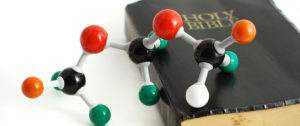
This year on Earth Day, thousands will gather in Washington, D.C., and in cities across the country to march for science and protect the deeply held value for truth and facts. They are marching to defend the vital role science plays in our communities and our world. They are marching because science is not partisan; it is not liberal or conservative. And they are marching to demonstrate that our nation values the scientists and the scientific agencies working to make our world safer, cleaner and healthier.
Why should a science march matter to people of faith?
To care for creation and to serve the most vulnerable among us are mandates shared by all major religions. The accelerating climate crisis and the consequences of global warming are the most urgent and dangerous symptoms of a failure by people of faith to fulfill this universal mandate.
The word conscience is defined as “the faculty by which distinctions are made between right and wrong; ethical judgment or sensibility.” It is in this single word that we can find the meeting point of science and religion, and the purpose in our future.
The climate crisis threatening our very existence is fostering an emerging dialog between science and religion. A crucial piece is the emerging awareness of our dependence on the environment and the fact that we are not only called to care for God’s creation, we are part of it.
In the words of Pierre Teilhard de Chardin, the 20th Century French Jesuit paleontologist:
The day will come, when after harnessing Space, the wind, the tides, and gravitation, we will harness for God the energies of Love. And on that day, for the second time in the history of the world, we shall have discovered Fire.
As people of faith we cannot continue to rely on our intellectual understandings of the most critical issues of our time. It is time to act. We must realize our role in the interdependent web of creation. We must walk in leadership towards sustainability. Through the lens of faith, hope trumps despair.
May the re-discovery of fire be the chalice we light to re-connect.
![]()
Susannah Tuttle, M.Div
Director, NC Interfaith Power & Light
NC Interfaith Power & Light (NCIPL) works with faith communities to promote the Creation Care practices of carbon mitigation, energy efficiency, and clean renewable energy opportunities as a moral imperative. NCIPL is a program of the North Carolina Council of Churches. This role provides access to the Council’s membership of over 6,200 congregations. The North Carolina Council of Churches is comprised of 25 distinct judicatories from 17 denominations with 1.5 million congregants across the state.
